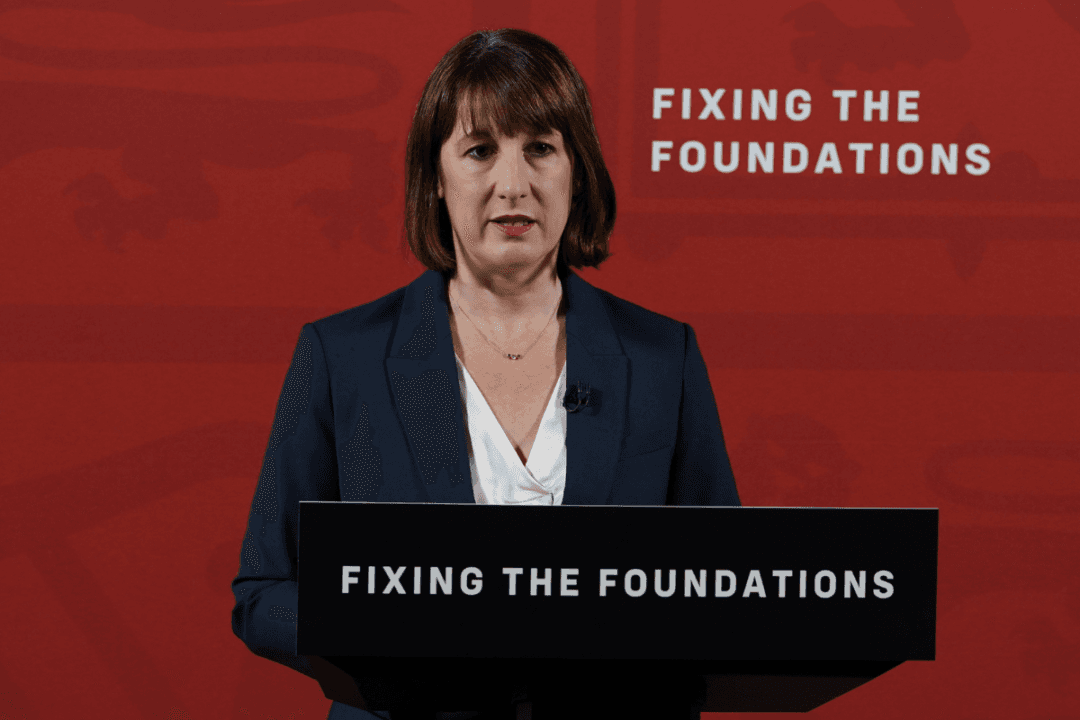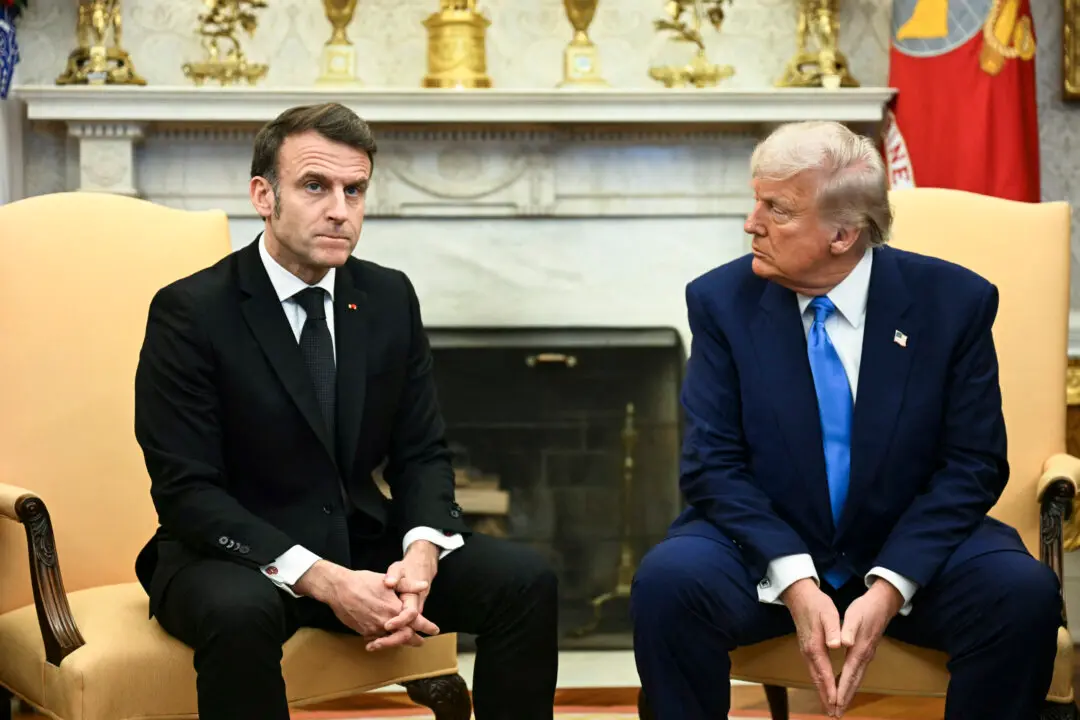Chancellor Rachel Reeves has admitted she was “wrong” to claim during the election campaign that she won’t have to raise taxes, but added that no additional hikes will be required.
When she spoke about tax increases during a campaign event on June 11, Reeves said there was no need for hikes beyond those set out in the Labour Party Manifesto. However, during Sky News’ “Sunday Morning With Trevor Phillips,” on Nov. 3, Reeves said she had underestimated the size of the UK’s budget gap.
“I was wrong on June 11, I didn’t know everything.
“Because when I arrived at the Treasury on July 5, just over a month after I said those words, I was taken into a room by the senior officials at the Treasury and they set out the huge black hole in the public finances, beyond which anybody knew about at the time of the general election because the previous government hid it from the country, they hid it from Parliament, and indeed they hid it from the independent official forecasters at the Office for Budget Responsibility.
“So when I went into that Budget last week, I had to put our public finances back on a firm trajectory,” Reeves said.
Public spending will increase by around £70 billion annually over the next five years and borrowing will increase by an average of £32.3 billion a year.
Labour has stressed the impact of the £22 billion “black hole” in public finances the party inherited from the previous Conservative government. But according to the Office for Budget Responsibility (OBR), the figure stood at £9 billion at the time of the March Budget. The OBR, however, said the financial position may have changed between March and July, when Labour came to power.
Pressed on whether she will announce further tax hikes, Reeves said: “I’m not going to be able to write five years’ worth of budgets on this show today, but ... there’s no need to come back with another Budget like this, we'll never need to do that again.
Tax Changes
The Treasury has vowed it will not be imposing tax increases on “working people,” but the £25.7 billion hike in employer national insurance contributions (NIC) is likely to impact employees and their wages.From April 2025, the employer NIC rate will rise by 1.2 percent, from 13.8 to 15 percent. Reeves said this would raise £25 billion per year until the end of the forecast period.
Charities and businesses have responded to the changes, warning of job losses and “devastating costs.”
The National Council for Voluntary Organisations said charities across the country will be forced to consider staff reductions and wage cuts.
James Smith, research director at the Resolution Foundation economic think tank, said that the employer NIC hike will “eventually feed through to lower wages.”
Reeves suggested that rather than lowering staff wages, businesses can “absorb” the employer NIC increases by accepting reduced profits or through efficiency gains.
This is a likely scenario, according to the Trades Union Congress (TUC). The union also noted that increases in the National Living Wage, announced in the Budget, deliver an “important protection for workers.”
Responding to Labour’s fiscal plan, the Conservative Party called it a “budget of broken promises.”
Labour insisted that its budget will deliver change and “fix the foundations” of the UK economy. Reeves said there would be “no return to austerity” and announced an extension of the freeze on fuel duty, a 1.7 percent cut to draught duty, and the abolition of the non-dom tax regime.
Other tax announcements included changes to capital gains tax and a flat tax on vape liquid.







